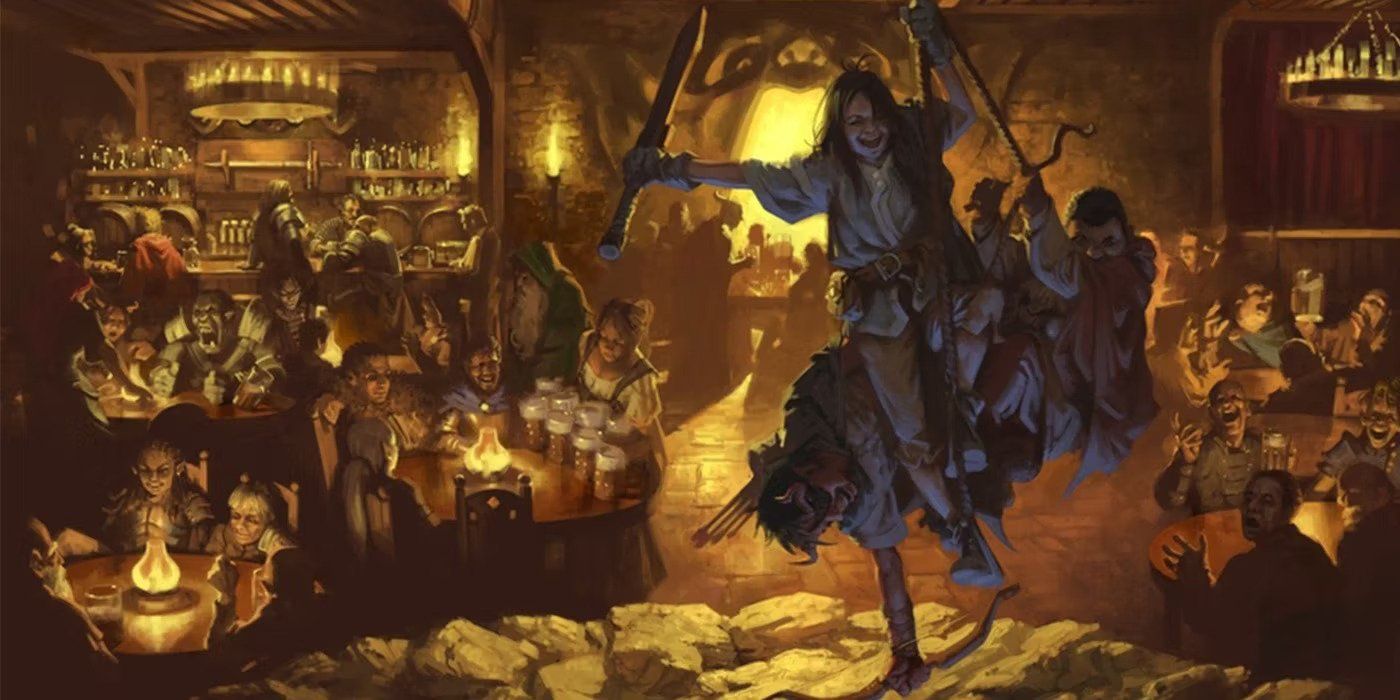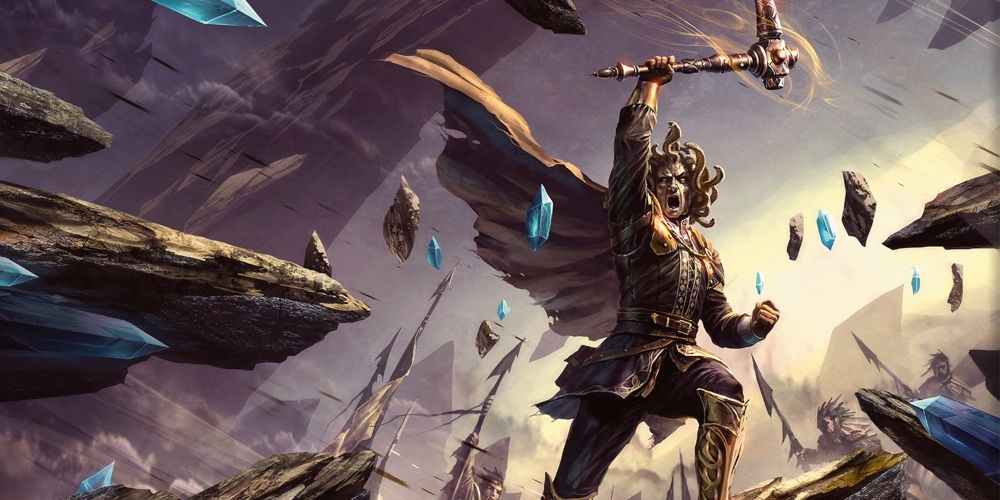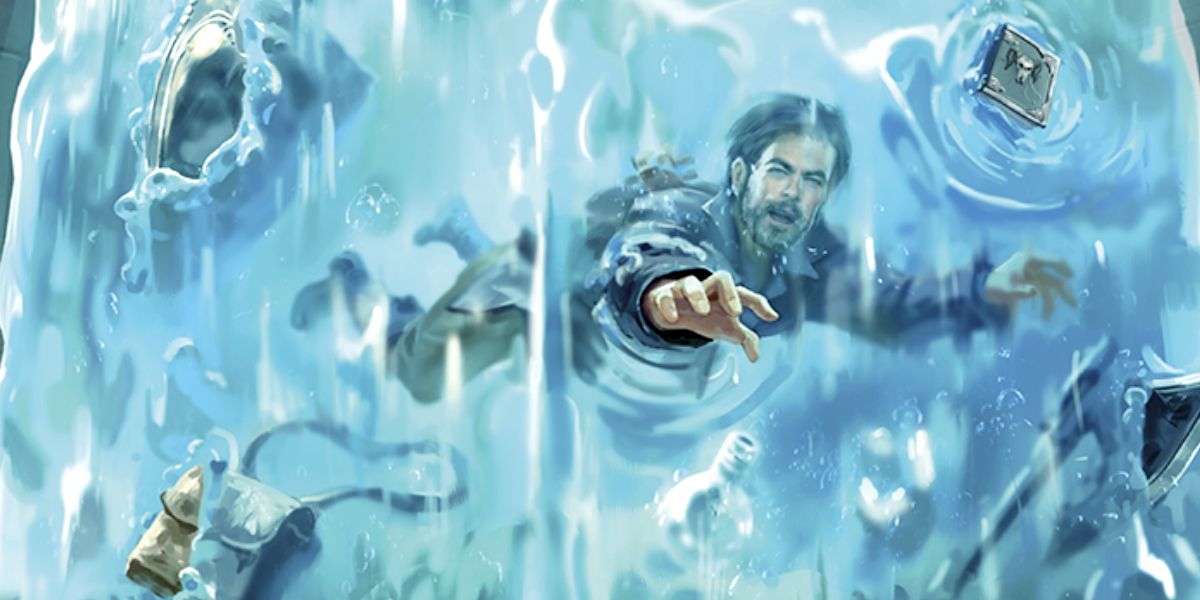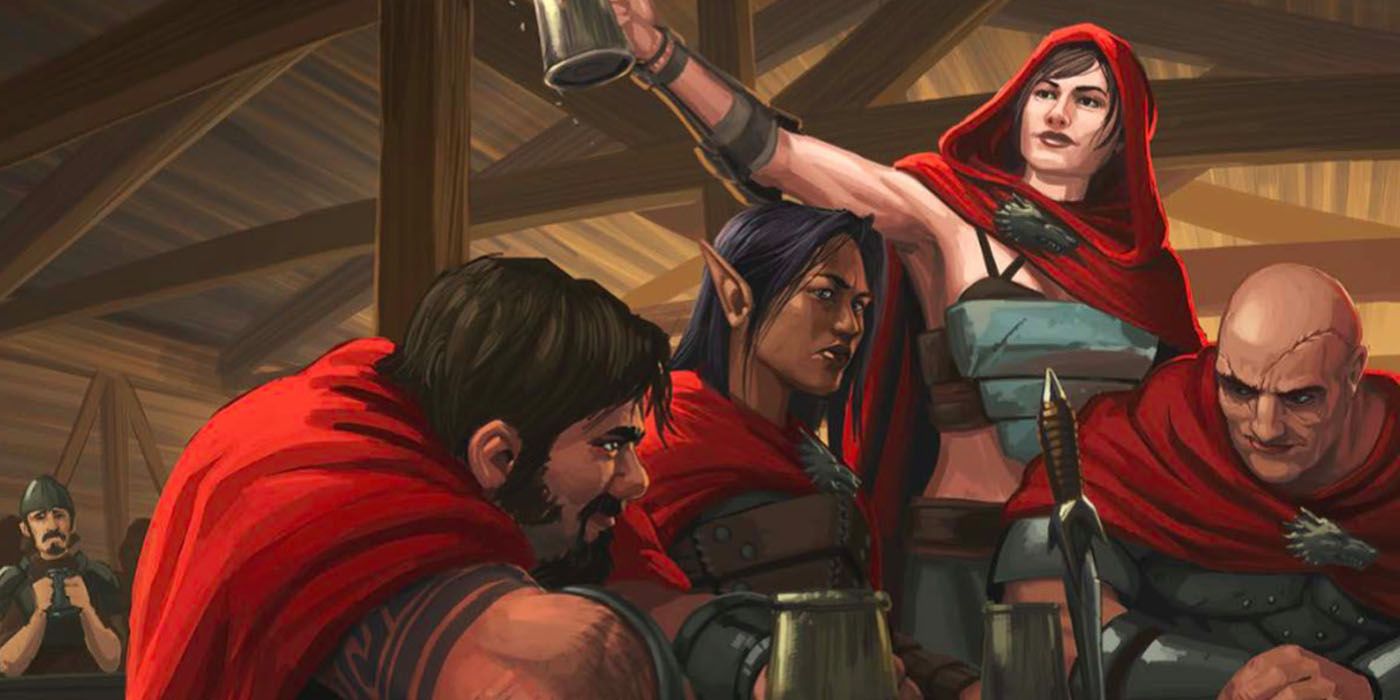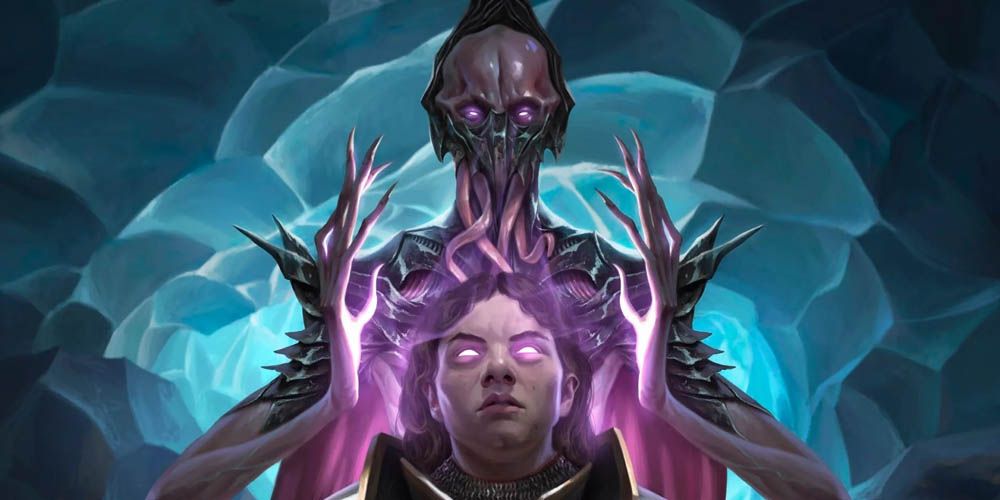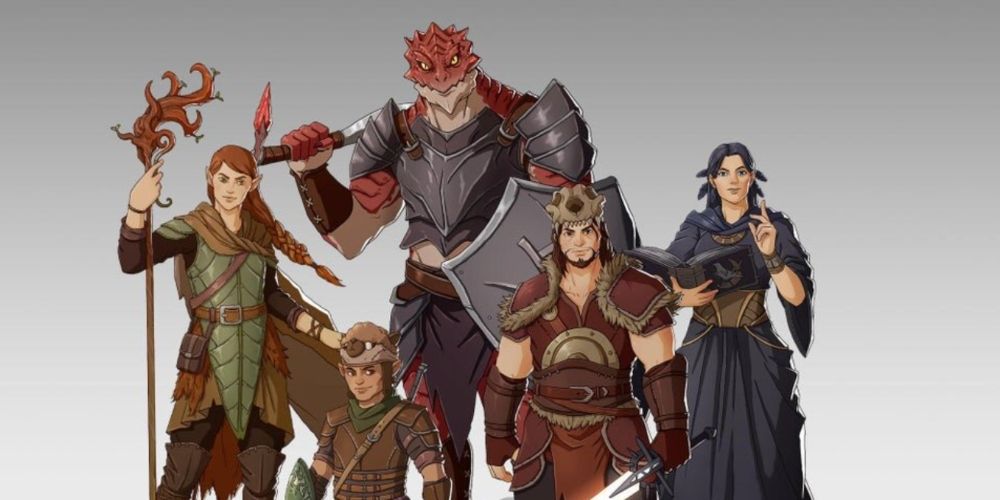Putting together the perfect Dungeons & Dragons party is a Dungeon Master's dream come true. When all players are at the table together, exploration and adventure tends to go more smoothly, and campaigns can either progress or reach a conclusion.
Unfortunately, real life often gets in the way of the ideal game everyone is searching for. With holidays, appointments, and other unexpected events making it difficult for all players to be present and accounted for from time to time, canceling sessions (or the entire campaign) may feel like the only move -- but it doesn't have to be. There are a few things DMs can do to keep the game going without creating a rift for players who may not be able to attend.
Snatch An Absent DnD Player Away for a Related Adventure
Whether the party is on the verge of a major battle or heading into a situation everyone is looking forward to, including an absent player offers some unique opportunities to explore when they return to the table again. For example, if the Warlock is absent from the table, perhaps their Patron snatched them away to conduct some important related task. Alternatively, maybe the Wizard fell into an inexplicable state of unconsciousness wherein they meet with an important NPC that might have answers the whole party needs.
When that player returns to the game, set aside some time to explore what their character got up to while they were snatched away. This can be a great way to get them up to speed and keep them connected to the game and its world. Ideally, this should relate to what the rest of the players were doing while they were gone, possibly providing addition information or plot hooks to pursue.
Hold Absent D&D Players In Temporary Stasis
Similarly, holding the player character in question in temporary stasis is an easy way to carry on, especially if players are about to face a battle. Maybe the absent Bard stepped on a trap that froze them in place for the time being, or a stasis field was activated and holds the Fighter immobilized. This means it's up to the remaining players to free their helpless companion. Instances like this are the perfect opportunity to put important plot beats on hold while still giving the present players something meaningful to work towards. Just be sure that the mechanism used doesn't put the absent player character in any real danger.
Add Micro-RPGs to DnD Campaigns to Keep Players Invested
There are a plethora of micro-RPGs out there that are designed to be played in a single session. They may not be directly related to Dungeons & Dragons, but many of them are simple enough in their rules that they can be easily adapted to suit just about any world setting or situation. Most do not require complicated character creation, complex rules, or copious prep work; players can simply dive in and start playing. DMs can even use a micro-RPG session to explain a related event that doesn't involve the main player characters, but still expand on the game's world to keep everyone invested in the story they've been building together.
Have the DM or Another Player Run the Missing D&D Character
The option to have someone else, be it the DM or another player, roll for the missing character is an easy fix, but it's important to talk to the player beforehand and get permission. Some players have a particular style, and they may not want someone else guiding their character down a path they might not otherwise take. There are risks of running a character that isn't present for the game, including that character's potential death. No one wants to take that risk with a friend's player character, especially without permission.
Make the D&D Session About the Absent Character
Whether they're only gone for a single session or they need to take an extended leave of absence, focusing an adventure around a missing character is a great way to keep both absent and present players invested. One great example of this type of scenario took place in Critical Role Campaign 2, while Travis Willingham, Laura Bailey, and Ashley Johnson were all going to be absent for an extended period of time.
DM Matthew Mercer staged a dangerous kidnapping scenario that set the rest of the Mighty Nein off on a major rescue mission that took place across multiple episodes. This not only kept the missing characters relevant to the ongoing game, but it also got the other players more invested in the game and the survival of their missing allies.
Regardless of the reason or the amount of time a player needs to be absent from the table, there are so many ways to keep the game going. Keeping everyone invested, including the absent party member, is one of the DM's most important tasks. Thinking outside the box and trying new things can not just keep the game moving along, but improve the way everyone plays.

